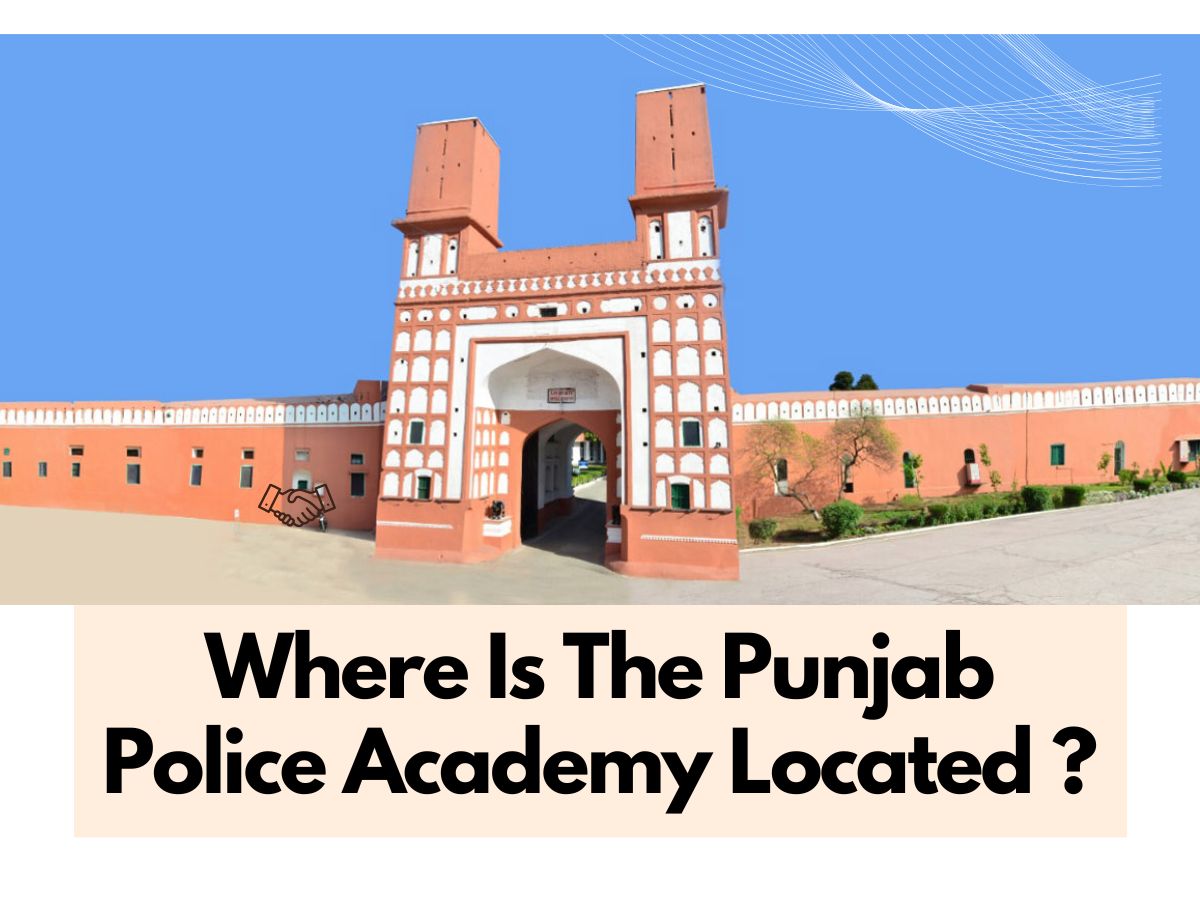Where Is The Punjab Police Academy Located?

The Punjab Police (abbreviated PP) is responsible for police departments and investigations in the Indian state of Punjab. The Punjab Police provides a wide range of specialized services, such as preventing and detecting crime, maintaining peace and order, and enforcing the Indian Constitution.
Its main office is located on Jan Marg in Chandigarh. On September 7, 2011, the Punjab Police launched a video conferencing facility to assist NRIs with their concerns. Viresh Kumar Bhawra is the current DGP of Punjab Police. He is an IPS officer of the 1987 batch.
Punjab Police Academy, Phillaur
Before the Police Act of 1861, the Punjab Police was known as the "Military Police Force" and included 8,100 soldiers. There were 5,400-foot soldiers organized into six battalions and 2,700 cavalrymen.
However, India's sword arm, Punjab, required a better force for its internal rule. On January 1, 1890, the Police Act of 1861 became operative in Punjab.
Immediately after that, the Provincial Government took police training seriously. Historically, the skill of crime prevention and detection, an important quality for a police officer, was largely left to the school of hard knocks.
The proposed army had to be rough and harsh to match this area's turbulent, powerful, tenacious, and proud inhabitants. In addition, it had to be courteous and well-versed in the local legal system. Consequently, the demand for a Police Training School emerged.
Police Training School
A Home Department notice of September 9, 1891, created the Police Training School in the Phillaur Fort with a small staff under Mr. J.M. Bishop, I.P., Assistant District Superintendent of Police. On January 1, 1892, the school's operations commenced.
Consequently, Punjab was the first state in the nation to create such a school. Lord Cuzon's appointment of the Police Commission in 1902 led to the establishment of most other training institutes. Thus, it is the nation's oldest police training facility.
The school was established to fulfill the training needs of officers and men from the North-Western Frontier Province, Punjab, and the former Princely States. This institute also provided instruction to the personnel recruited for the Indian Police.
The training programs emphasized physical fitness or drills and specialized work areas like patrols, criminal investigation, and various other jobs. The princes and senior commanders of the former princely states were sent for training.
Additionally, the late Maharaja Yadvindra Singh of Patiala got instruction at this institution. His father provided the billiards table to the officers' mess at the time. Numerous I.P officers who distinguished themselves in the Police Service graduated from this college.
This included Sardar Sant Parkash Singh, the first Inspector General of Police of Punjab after independence, Mr. Kurban Ali, who later became Governor of Pakistan's North Western Frontier Province, Nawab Itzazuddin, a police officer of great renown in Pakistan, and Shri Ashwani Kumar, who occupied very important positions in the hierarchy of national Police organizations.
Mr. F.H. Duheaume served this institution's principal four times between 1934 and 1942. He laid the roadways within and outside the campus, situated on around 250 acres.
He also designed and planted the campus's abundant fauna and flora, including several rare species of trees.
Mr. H.W. Hale, an additional British officer, served as the institution's principal in 1938, 1939, 1942, and 1947. He established strict rules of conduct at the institution. One day, he allegedly arrived 15 seconds late for an inspection of the general parade.
Nobody noticed this delay, but when he returned from the procession, he began running under the blistering July heat for almost one hour. When questioned why he was behaving this way, he responded that he had likely gotten sluggish and was thus disciplining and punishing himself for overcoming it.
His example helped to establish high standards of discipline and timeliness and established this institution as the preeminent training center in the country. Sh. Ashwini Kumar, I.P. succeeded Mr. W. St. Hodder, I.P. as the first Indian principal in 1947.
Punjab Police Academy
The institution was renamed Maharaja Ranjit Singh, Punjab Police Academy in April 1995, and it became associated with Guru Nanak Dev University, Amritsar, in 1996.
It provides training facilities for Punjab and 12 other Indian states, union territories, and national police agencies.
Bhutan, Maldives, Afghanistan, and Palestine, among others, all send their police officers here for training. The Academy collaborates with British and Ethiopian Police agencies in research, academia, and specialized training.
The Academy includes cutting-edge training facilities supported by contemporary architectural design and specialized police training courses.
The Academy is the first police training school in the country to provide M.A., M.Phil., and Ph.D. degree programs in the field of Police Administration in conjunction with Guru Nanak Dev University, Amritsar, a fact that has been lauded at the national and international levels.
View Also -
When Will Coaching Institutes Reopen In Rajasthan?
Which Coaching Is Best For NEET?
